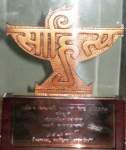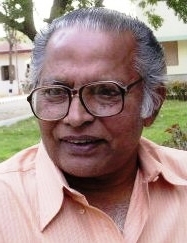Rajmohan Gandhi Sahitya Akademi Award Awarded In 2001
Rajmohan Gandhi
Award Name : Sahitya Akademi Award
Year of Award : 2001
Award for : Literature
Location : New Delhi, NCT, India
Rajmohan Gandhi is a biographer and grandson of Mahatma Gandhi and Chakravarthi Rajagopalachari, and a research professor at the Center for South Asian and Middle Eastern Studies, University of Illinois at Urbana-Champaign, USA. He is also a Scholar in residence at Indian Institute of Technology Gandhinagar. He was born on August 7, 1935 in New Delhi. He attended St. Stephen's College, New Delhi, India. Gandhi's maternal grandfather was C. Rajagopalachari, free India's 2nd Head of State (first being Lord Mountbatten), the first Indian Governor General of independent India (Lord Mountbatten being British) and one of the foremost associates for Mahatma Gandhi.
In the 1960s and early 1970s, he played a leading role in establishing Asia Plateau, the 68-acre (280,000 m2) conference centre of Initiatives of Change in Panchgani, in the mountains of western India. Asia Plateau has been recognized in the Indian subcontinent for its ecological contribution. During the 1975-77 Emergency in India, he was active for democratic rights personally and through his weekly journal Himmat, published in Bombay from 1964 to 1981. His latest book, A Tale of Two Revolts: India 1857 & the American Civil War, studies two 19th-century wars occurring in opposite parts of the world at almost the same time.
His previous book, a biography of his grandfather Mahatma Gandhi, Mohandas: A True Story of a Man, His People and an Empire, received the prestigious Biennial Award from the Indian History Congress in 2007. It has since been published in several countries. In 2001 he received the Sahitya Akademi Award for his Rajaji: A Life, a biography of Chakravarti Rajagopalachari (1878-1972), his maternal grandfather and a leading figure in India’s freedom movement, who became the first Indian Governor General, 1948-50. In 1989, Gandhi unsuccessfully contested the Lok Sabha election against Rajiv Gandhi in Amethi. He served (1990–92) in the Rajya Sabha (the upper house of the Indian Parliament) and led the Indian delegation to the UN Human Rights Commission in Geneva in 1990. In the Indian Parliament he was the convener of the all-party joint committee of both houses addressing the condition of Scheduled Castes and Scheduled Tribes.





